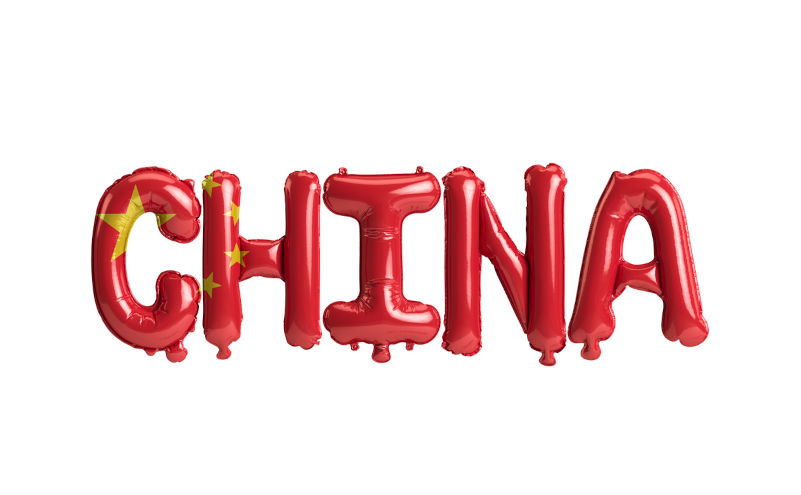When in doubt, blame China (every News Corp headline needs a villain)
November 7, 2025
If you only skimmed the headlines from News Corp, you’d be forgiven for thinking China was launching a krill-powered naval strike from Antarctica, staging an electric vehicle blitzkrieg across the outback and forcing Hyundai into some humiliating act of surrender.
Reality, of course, is far less dramatic.
Across three recent stories, News Corp reporters produced largely sober coverage: an Antarctic marine life mission, an EV product launch and a multinational carmaker’s supply chain strategy. Each article contains facts, industry context, and relevant quotes. And yet — without fail — each was framed through the same lens: geopolitical threat, Chinese aggression and foreign infiltration.
Marine conservation or ‘ocean offensive’?
In David Attenborough, 99, says protecting oceans his life goal, News Corp covers a globally lauded effort to combat krill overfishing in Antarctica.
The story introduces respected groups like the Captain Paul Watson Foundation and references shocking footage from Attenborough’s new film, Ocean, detailing the environmental toll of industrial trawling.
It rightly points out that Norway — specifically AKER Biomarine — dominates the krill industry and that countries like South Korea, Chile and Ukraine are rapidly expanding their fleets.
But the preamble? “An ocean offensive to stop trawlers from China and other nations plundering the seas will be launched from Victoria.”
The lead paragraph repeats it: “A huge ocean offensive to stop industrial trawlers from China and other nations…”
Why single out China, when Norway is the largest actor – and even wants to double its quota? Why imply military conflict (“offensive”) in a story about environmental protection? Why gloss over the fact that krill quotas are governed by international treaties – or downplay that several countries, including close partners like South Korea and Ukraine, are also involved?
Because “China plundering” fits News Corp’s editorial script, the script is not about nuance but about narrative.
And the narrative must have a villain.
EV expansion becomes ‘assault’
BYD, China’s largest EV maker, is expanding rapidly in Australia – as are Tesla, Hyundai and Kia. A recent story offers readers a detailed look at BYD’s strategy: the arrival of new Denza luxury models, localised leadership with experience at Honda and Holden and ambitions to enter Australia’s top-three brands by 2026.
But on News.com.au’s “China” topic page, the headline screams: ‘In weeks’: China giant plans Aus assault.
This isn’t a war. The only thing being launched is a car – C-A-R, car.
The tone of the article itself — BYD’s big plan for Australia — is largely neutral, even enthusiastic. It features quotes from BYD’s Australian chief operations officer and includes pricing, range specs and comparisons to other brands.
But again, the headline — which is often the only thing widely seen on aggregators and social feeds — primes the reader for conflict. “Assault”, “giant”, “China”, “in weeks” – it’s designed to activate fear, not inform decision-making.
A Chinese carmaker schedules a launch and News Corp upgrades it to an “assault”. The pattern is familiar: if the subject is Chinese, reach for the military thesaurus and bring on the dog whistles.
Hyundai buys from China — and ‘surrenders’
Perhaps the most revealing case is the Hyundai Elexio story.
The actual reporting is about Hyundai — a South Korean company — sourcing its next EV model from China, as part of a strategic cost-saving decision to stay competitive. This makes business sense: Tesla builds in Shanghai, Mazda and Kia source from China, and one in five cars on Australian roads is now made in China.
But the headline? Aussie favourite surrenders to China.
Hang on. Does it look like China’s taking over an Aussie company? Or hauling away our critical minerals?
What’s actually happening: Hyundai’s EVs are struggling to compete. It needs lower-cost models. So it turned to its joint venture with China’s BAIC to meet that need. Australian engineers even helped tune the car for local roads.
The move is, simply, economic.
Yet News Corp’s framing casts it as capitulation, surrender and threat. Funny not one Japanese, German or American brand that sources from China is described this way in this article.
The fear is selective.
What ties these stories together is not just their content – it’s the editorial reflex that weaponises China into every headline. Even when the article itself is balanced, even when China isn’t the primary actor, even when Chinese companies are just one part of a global supply chain, News Corp retools the frame to fit a ready-made geopolitical drama.
Call it what you want – it sure isn’t journalism.
This is pulp geopolitics dressed up as public service and it’s eating away at our public sphere like acid on steel.
Even more cynically, News Corp’s own journalists often appear to know better. The body of these stories — the quotes, the data, the nuance — show understanding. It’s the headline and framing layers that inject hostility. The editorial tail wags the reporting dog.
BYD isn’t attacking us. Hyundai hasn’t surrendered. And the krill story is about all the countries involved, not a Chinese plot.
Our journalists can still tell sharp, critical, honest stories – but they might want to break free of the editorial obsession with casting China as the eternal antagonist.
Otherwise, a full-blown invasion really is just a couple of headlines away (on paper).

